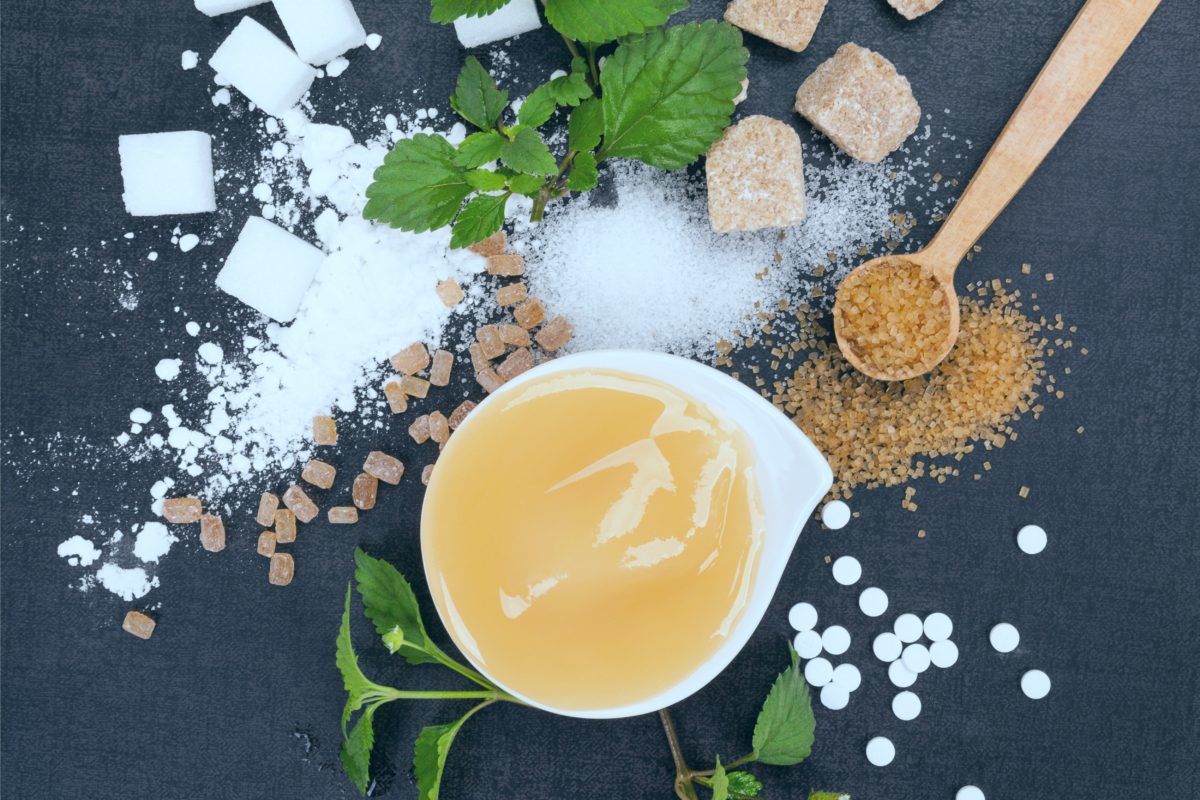
“
In a world filled with tempting sugary treats and convenient processed foods, finding a balance can be challenging. But fear not! We’re here to guide you through the maze of limiting added sugars and help you make informed decisions about what lands on your plate. Let’s explore how to cut back on sugar and embrace whole, nourishing options for a healthier lifestyle.1
1
”
Added sugars contribute extra calories without essential nutrients, often leading to weight gain and obesity. This is because they provide "empty" calories, which are high in energy but low in nutritional value. 1
High intake of added sugars can lead to insulin resistance, a precursor to type 2 diabetes. Consuming sugary drinks and snacks frequently raises blood glucose levels and disrupts metabolic processes.Many everyday foods contain hidden sugars like, Ketchup, and bread. 2
Free sugars are sugars added to food or drinks. They include sugars in biscuits, chocolate, flavoured yogurts, breakfast cereals, and fizzy drinks such as sucrose, glucose, fructose, and high-fructose corn syrup. 3
The World Health Organization recommends that adults add no more than 30g of free sugars per day (approximately 7 sugar cubes). Children aged 7 to 10 should have no more than 24g (6 sugar cubes), and children aged 4 to 6 should limit it to 19g (5 sugar cubes) daily.4

Sugars feed harmful bacteria in the mouth, leading to tooth decay and cavities. When these bacteria digest sugars, they produce acids that erode tooth enamel. Reducing added sugars can help tooth protection.
Natural sugars found in fruits and vegetables come with fiber and essential nutrients. Added sugars, on the other hand, provide empty calories and can contribute to weight gain and other health issues. 5
Processed meats like bacon, sausages, and deli meats are often high in sodium and preservatives, which can increase the risk of High blood pressure (hypertension, Heart disease, Chronic obstructive pulmonary disease (COPD), Bowel and stomach cancer. 6
Added sugars, particularly fructose, are metabolised in the liver and can contribute to fat accumulation, especially around the abdomen. This can increase the risk of fatty liver disease.The liver disease directly causes blood deficiency. 7
When choosing condiments, opt for reduced-sugar varieties of syrups, jams, jellies, and preserves. Additionally, be mindful of salad dressings and ketchup, as they often contain added sugar, that sugar can activate the brain's reward system similarly to addictive substances. 8
Cooking at home allows you to control the ingredients and reduce added sugars and unhealthy fats. Experiment with herbs and spices to enhance flavors naturally. Opt for small amounts of unsaturated fats like rapeseed, sunflower, or olive oil instead of butter, ghee, lard, or coconut oil. 9
When reading ingredient lists, keep an eye out for hidden sugars. These can appear under various names, including sucrose, glucose, fructose, corn syrup, and molasses. Familiarizing yourself with these terms will help you make healthier choices. 10

Artificial sweeteners, while helpful for reducing calorie intake, can sometimes have negative effects on metabolism and gut health. It’s best to use them sparingly and prioritise overall sugar reduction. Remember to consult with a healthcare professional if you have any specific needs.
Craving something sweet? Opt for fresh fruit. Berries, apples, and bananas provide natural sweetness not only to satisfy your sweet tooth but also offer essential nutrients like fiber, vitamins, and minerals. Enjoy the natural sweetness guilt-free.11
Research indicates that processed foods can indeed be addictive, activating similar reward centers in the brain as drugs. By consciously reducing consumption of these foods, you can help break the cycle of cravings and promote healthier eating habits. 12
Whole food snacks like nuts, seeds, fruits, and vegetables are excellent choices. They provide essential nutrients, fiber, and antioxidants, helping to maintain steady energy levels throughout the day. Remember to stay hydrated as well. 13
Planning meals ahead of time can help you make healthier choices and avoid the convenience of processed foods. Batch cooking and prepping ingredients can save time and reduce stress.14
Mindful eating is a wonderful practice. By savouring each bite, you become more attuned to your body’s hunger and fullness cues. Plus, it allows you to truly appreciate the flavours and textures of whole, natural foods. 15
Keeping a water bottle handy is a great habit. Adding a slice of lemon, cucumber, or mint not only enhances the flavor but also provides a touch of natural refreshment without any added sugars. 16
Smoothies can be a healthy option, but avoid adding sugars or high-sugar ingredients. Use water or unsweetened plant-based milk as a base and load up on greens and low-sugar fruits. 17
A diet high in processed foods and sugars can disrupt the balance of good bacteria in your gut. Eating a variety of whole foods supports a healthy microbiome, which is crucial for overall health. Making dietary changes can be challenging. 18


